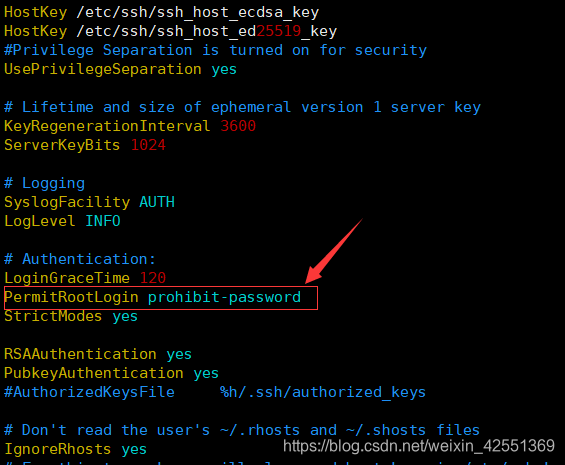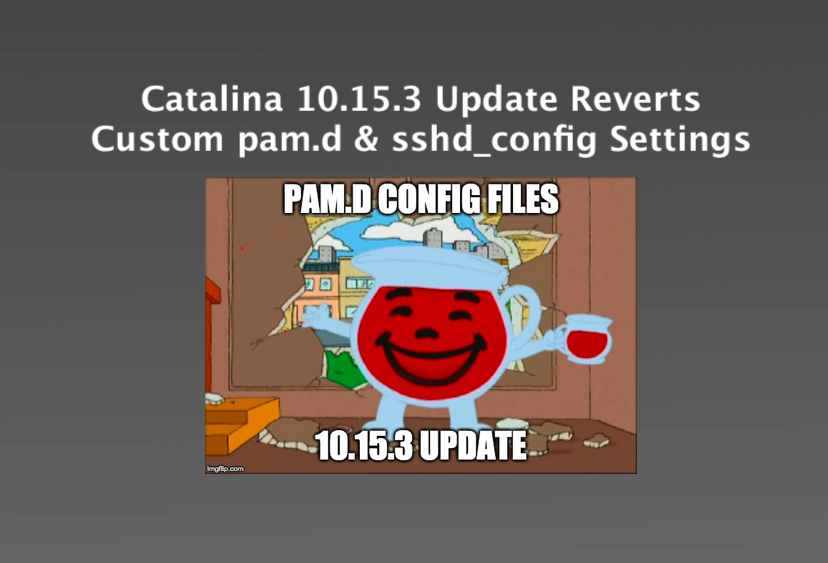
- Sample SSH Config File Example. Now I can just do SSH for one of these servers and the respective configuration option will be used for the connection (Here I have not defined any server1 in /etc/hosts and this mapping is working due to the SSH configuration file) deepak@client $ ssh server1 root@ 192.168.43.154 's password: Welcome to server1 This file was created on 2020-02-01 Go away if.
- The sshdconfig file is an ASCII text based file where the different configuration options of the SSH server are indicated and configured with keyword/argument pairs. Arguments that contain spaces are to be enclosed in double quotes ('). In the sshdconfig file the keywords are case-insensitive while arguments are case-sensitive.
- The ssh program on a host receives its configuration from either the command line or from configuration files /.ssh/config and /etc/ssh/sshconfig. Command-line options take precedence over configuration files. The user-specific configuration file /.ssh/config is.
In Windows, sshd reads configuration data from%programdata%sshsshdconfig by default, or a different configuration file may be specified by launching sshd.exe with the -f parameter. If the file is absent, sshd generates one with the default configuration when the service is started.
The /etc/ssh/sshd_config file is the system-wide configuration file for OpenSSH which allows you to set options that modify the operation of the daemon. This file contains keyword-value pairs, one per line, with keywords being case insensitive. Here are the most important keywords to configure your sshd for top security; a complete listing and/or special requirements are available in the man page for sshd(8).
Edit the sshd_config file, vi /etc/ssh/sshd_config and add/or change, if necessary, the following parameters:
Sshd Config Ipv4
This tells sshd_config file to set itself up for this particular configuration setup with:
 Port 22
Port 22 The option Port specifies on which port number ssh daemon listens for incoming connections. The default port is 22.
ListenAddress 192.168.1.1 The option ListenAddress specifies the IP address of the interface network on which the ssh daemon server socket is bind. The default is 0.0.0.0; to improve security you may specify only the required ones to limit possible addresses.
HostKey /etc/ssh/ssh_host_key The option HostKey specifies the location containing the private host key.
ServerKeyBits 1024 The option ServerKeyBits specifies how many bits to use in the server key. These bits are used when the daemon starts to generate its RSA key.
LoginGraceTime 600 The option LoginGraceTime specifies how long in seconds after a connection request the server will wait before disconnecting if the user has not successfully logged in.
KeyRegenerationInterval 3600
The option KeyRegenerationInterval specifies how long in seconds the server should wait before automatically regenerated its key. This is a security feature to prevent decrypting captured sessions.
PermitRootLogin no The option PermitRootLogin specifies whether root can log in using ssh. Never say yes to this option.
IgnoreRhosts yes The option IgnoreRhosts specifies whether rhosts or shosts files should not be used in authentication. For security reasons it is recommended to no use rhosts or shosts files for authentication.
IgnoreUserKnownHosts yesSshd Config Path
The option IgnoreUserKnownHosts specifies whether the ssh daemon should ignore the user's $HOME/.ssh/known_hosts during RhostsRSAAuthentication.
StrictModes yes The option StrictModes specifies whether ssh should check user's permissions in their home directory and rhosts files before accepting login. This option must always be set to yes because sometimes users may accidentally leave their directory or files world-writable.
Sshd Configuration
X11Forwarding no The option X11Forwarding specifies whether X11 forwarding should be enabled or not on this server. Since we setup a server without GUI installed on it, we can safely turn this option off.
PrintMotd yes The option PrintMotd specifies whether the ssh daemon should print the contents of the /etc/motd file when a user logs in interactively. The /etc/motd file is also known as the message of the day.
SyslogFacility AUTH The option SyslogFacility specifies the facility code used when logging messages from sshd. The facility specifies the subsystem that produced the message--in our case, AUTH.
LogLevel INFO The option LogLevel specifies the level that is used when logging messages from sshd. INFO is a good choice. See the man page for sshd for more information on other possibilities.
RhostsAuthentication no The option RhostsAuthentication specifies whether sshd can try to use rhosts based authentication. Because rhosts authentication is insecure you shouldn't use this option.
RhostsRSAAuthentication no The option RhostsRSAAuthentication specifies whether to try rhosts authentication in concert with RSA host authentication.
RSAAuthentication yes The option RSAAuthentication specifies whether to try RSA authentication. This option must be set to yes for better security in your sessions. RSA use public and private key pairs created with the ssh-keygen1utility for authentication purposes.
 PasswordAuthentication yes
PasswordAuthentication yes The option PasswordAuthentication specifies whether we should use password-based authentication. For strong security, this option must always be set to yes.
PermitEmptyPasswords no The option PermitEmptyPasswords specifies whether the server allows logging in to accounts with a null password. If you intend to use the scp utility to make automatic backups over the network, you must set this option to yes.
AllowUsers admin The option AllowUsers specifies and controls which users can access ssh services. Multiple users can be specified, separated by spaces.
PrevHomeNextConfigure the /etc/ssh/ssh_config fileUpConfigure OpenSSH to use TCP-Wrappers/inetd super server 



